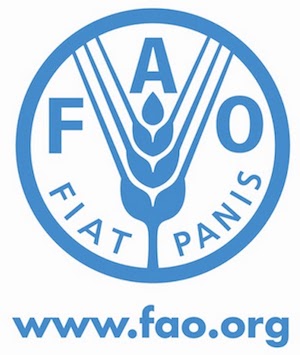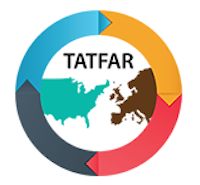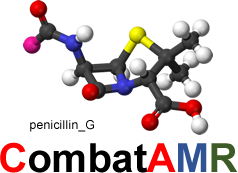taking action, we can help good ideas to spread."


>UN World Health Organisation (WHO) – antimicrobial resistance
http://www.who.int/drugresistance/en
WHO is the coordinating authority for health issues within the United Nation Organisation. It provides leadership on global health matters, shapes the international health research agenda and provides technical support to countries. It monitors and assesses health trends, setting standards, promotes equitable access to essential care and urges collective defence strategies against all transnational threats.

>UN Food & Agriculture Organisation
http://www.fao.org
The Food and Agriculture Organization of the United Nations is a specialized agency of the United Nations that leads international efforts to defeat hunger. Serving both developed and developing countries, FAO acts as a neutral forum where all nations meet as equals to negotiate arguments and debate policy. A specialized agency of the United Nations, it leads international efforts to defeat hunger and achieve food access and security for all.
>The World Organisation for Animal Health

The OIE is an intergovernmental organisation created by the International Agreement of 25 January 1924, signed by 28 countries. In 2011, the OIE totalled 178 Member Countries and Territories. Its coordinates, supports and promotes animal disease control. The need to fight animal diseases at a global level led to the creation of the Office International des Epizooties through the 1924 International Agreement. In May 2003 the Office became the World Organisation for Animal Health but kept its historical acronym OIE.
>The UN Foundation
https://unfoundation.org/
The UN has the mission and reach to solve global problems at a time when collective action is needed more than ever. The UN Foundation was launched in 1998 with a $1 billion gift from Ted Turner to support the United Nations causes. The creation of the Foundation was intended to encourage other donors to also support the UN in its activities. It invests in strategic thinking and fresh ideas for tackling the global challenges that shape our world.
>Interagency Coordination Group on Antimicrobial Resistance (IACG)
The United Nations Secretary-General has established IACG to improve coordination between international organizations and to ensure effective global action against this threat to health security. The IACG is co-chaired by the UN Deputy Secretary-General and the Director General of WHO and comprises high level representatives of relevant UN agencies, other international organizations, and individual experts across different sectors.
>The Global Antimicrobial Resistance Surveillance System (GLASS)
In May 2015, the Sixty-eighth World Health Assembly adopted the Global action plan on antimicrobial resistance, which reflects the global consensus that AMR poses a profound threat to human health. One of the five strategic objectives of the Global action plan is to strengthen the evidence base through enhanced global surveillance and research. The Global Antimicrobial Resistance Surveillance System (GLASS) has been developed to facilitate and encourage a standardized approach to AMR surveillance globally and in turn support the implementation of the Global action plan on antimicrobial resistance.
>FLEMING FUND - a UK AID Programme
https://www.flemingfund.org/
Established to help low and middle income countries tackle antimicrobial resistance (AMR), the Fleming Fund aims to improve the surveillance of AMR and generate relevant data that is shared nationally and globally.It emphasises the importance of data as not enough is known about the scale and scope of AMR. We need to improve access to data on:
- the extent and trends of resistance itself
- the burden of disease associated with AMR
- trends in use of antimicrobial medicines
- the quality of antimicrobial medicines being used.
>See Update on FAO’s Fleming Fund work:
https://www.flemingfund.org/publications/moving-from-plans-to-action-updates-on-the-faos-fleming-fund-work/
The Food and Agriculture Organization (FAO) is supported by the Fleming Fund to tackle AMR through a one-health approach alongside the World Health Organization (WHO) and the World Organisation for Animal Health (OIE). This activity is now in its second year and the focus has shifted from supporting countries to develop National Action Plans to assisting these countries in putting the plans into action.
>Centers for Disease Control and Prevention (CDC)
https://www.cdc.gov/
The CDC based in Atlanta, is one of the major operating components of the Department of Health and Human Services - Saving Lives: Protecting people - globally. For over 70 years CDC has been dedicated to protecting health and promoting the quality of life through the prevention and control of disease.
Antibiotic resistance is one of the biggest public health challenges of our time. Each year in the U.S., at least 2 million people get an antibiotic-resistant infection, and at least 23,000 people die. Fighting this threat is a public health priority that requires a collaborative global approach across sectors. CDC is working to combat this threat globally. Read more: https://www.cdc.gov/drugresistance, & https://www.cdc.gov/getsmart

>TATFAR Transatlantic task force on urgent antimicrobial resistance – TATFAR
On 3 November 2009 there was a call by the EU-US Summit Declaration for the establishment of “a transatlantic task force on urgent antimicrobial resistance issues focused on appropriate therapeutic use of antimicrobial drugs in the medical and veterinary communities,prevention of both healthcare and community-associated drug-resistant infections and strategies for improving the pipeline of new antimicrobial drugs, which could be better addressed by intensified cooperation between us. The result was TATFAR, an organization that makes recommendations on how to fight the threat of drug resistance worldwide. TATFAR’s technical experts from Canada, the European Union (EU), Norway, and the United States (U.S.) collaborate and share best practices to strengthen domestic and global efforts in 3 Key Areas:
- Improve appropriate therapeutic use of antimicrobial drugs in medical and veterinary communities,
- Prevent healthcare- and community-associated drug-resistant infections, and
- Develop strategies for improving the pipeline of new antimicrobial drugs.
For more information about TATFAR, email TATFAR [at] cdc.gov.

